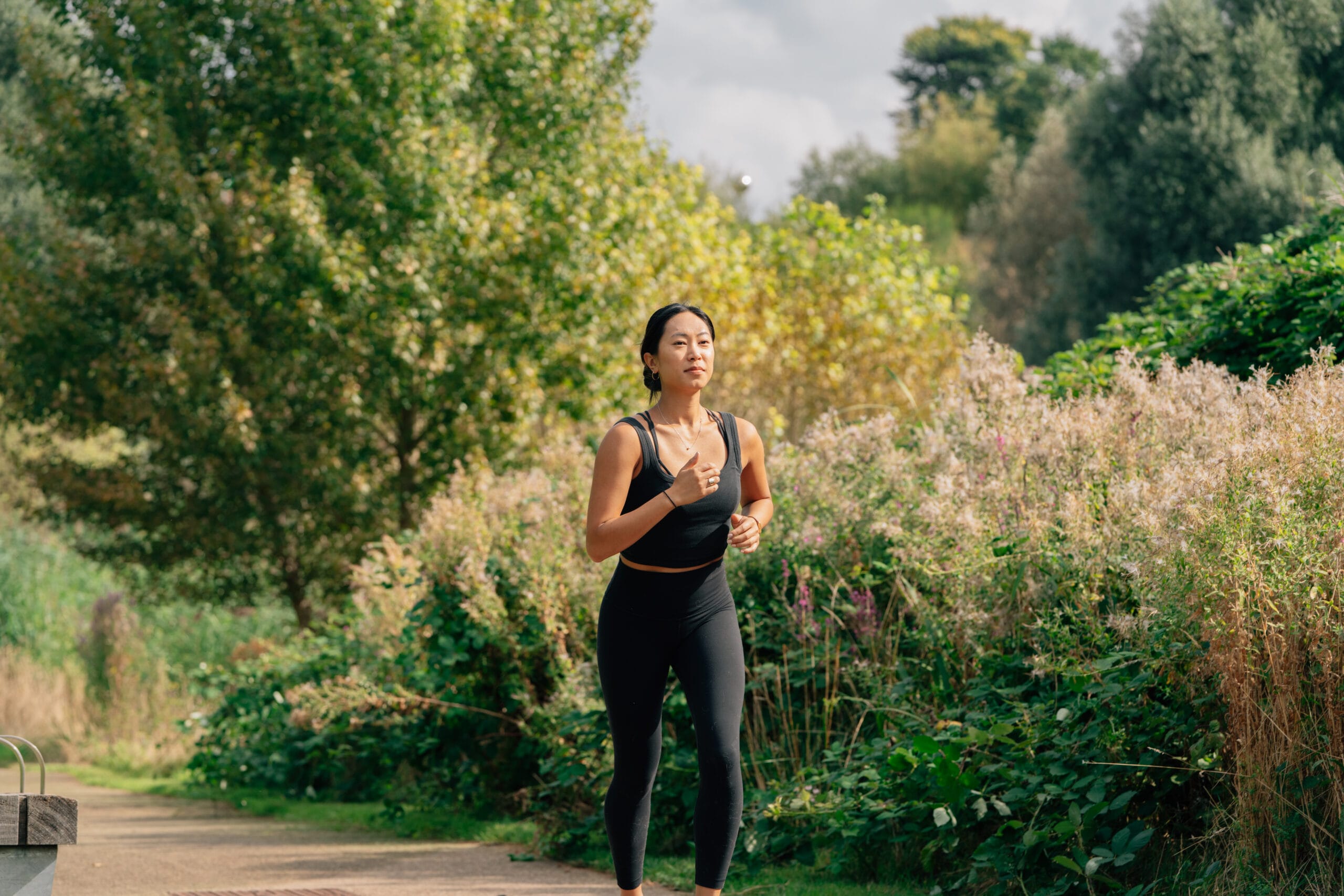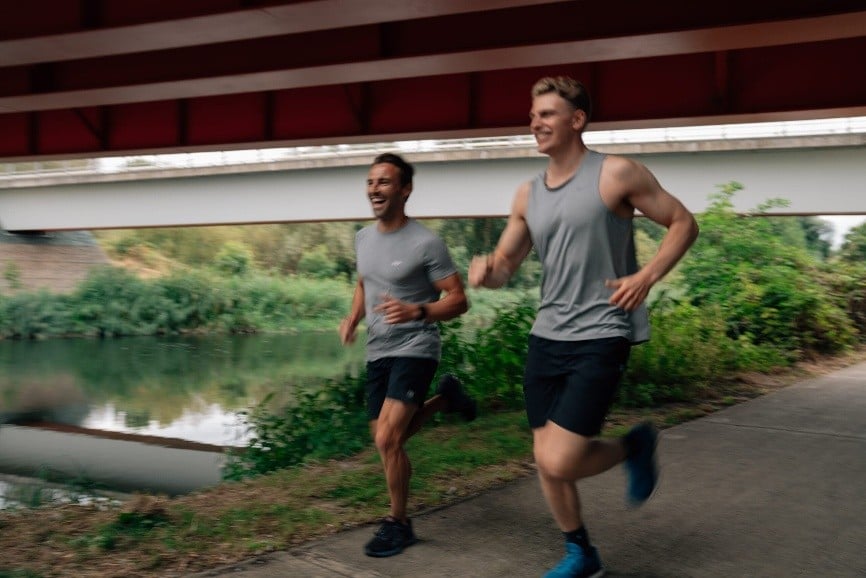Summer Running Guide: Beat the Heat

Andy Page
Clinic Manager & Strength and Conditioning Coach
- 28 April, 2025
- Running
- 3 min read
Summer Running Guide: Beat the Heat
Summer is a season that brings longer days, warmer weather, and the perfect conditions for outdoor activities, especially running.
However, the heat can also pose unique challenges to runners, affecting performance, hydration, nutrition, and overall health. In this comprehensive guide, we’ll dive into the secrets of enhancing your running performance during these scorching summer months, covering everything from training plans and gear to nutrition, recovery, hydration, psychological strategies, and more.
Adapting Your Training Plan for Summer
When the temperatures rise, it’s crucial to adapt your training plan accordingly to maintain and even improve your running performance. Start by gradually increasing your weekly mileage, aiming for no more than a 15% increase, and incorporate an easy week with 50% of your regular mileage every fourth week. This strategy helps prevent injuries and ensures a steady build-up of fitness. Consider Lactate threshold testing to find your optimal heart rate zones, as your rate will often be higher due to the heat.
Incorporate speed work and threshold runs into your routine. These shorter, more intense sessions are not only time-efficient but also reduce the risk of heat-related discomfort compared to longer runs. Remember, the goal is to train smarter, not harder, in the summer heat.
Choosing the Right Gear for Hot Weather Runs
The right gear can make a significant difference in your comfort and performance during summer runs. Opt for light, synthetic fabrics that wick sweat away from your body, helping to lower your body temperature. Avoid Lycra and compression garments as they can impair cooling. Additionally, consider investing in a quality pair of sunglasses, a breathable hat, and a good sun cream to protect yourself from the sun’s harmful rays.
Mastering Hydration and Nutrition Strategies
Hydration and nutrition are always important for runners, but they become even more critical during the summer. One of the most common mistakes runners make in the summer is overhydrating with water alone, which can lead to dilution of electrolytes in your blood and hyponatremia (low sodium levels).
To hydrate properly, drink steadily throughout the day and balance your water intake with electrolytes by incorporating sports drinks or electrolyte supplements into your hydration plan, especially during long runs. Read Staying Hydrated When Exercising in The Heat to find out more.
Your nutritional intake should also adapt to the summer conditions. Increase your carbohydrate intake before and after long runs to fuel your body and aid recovery. However, avoid heavy consumption of carbohydrate gels and protein bars during runs, as stomach discomfort is more common in the heat.
Implementing Effective Recovery Techniques
Post-run recovery is vital, especially in the warmer months when your body is under additional stress. While the evidence for cold water immersion, like ice baths, for example, remains inconclusive, a lukewarm shower can help cool your core temperature without the shock that could potentially stop the body from cooling effectively. Additionally, focus on gentle stretching, adequate sleep, and proper nutrition to aid in recovery.
Psychological Strategies for Summer Running
Mentally preparing for summer running is just as important as physical preparation. Accept that running in the heat will be more challenging and adjust your expectations accordingly. Slow down your pace, listen to your body, and focus on the benefits of heat training, such as improved cardiovascular fitness and endurance. Visualisation techniques and positive self-talk can also help you stay mentally strong and focused during those tough, hot runs.
Scheduling Runs to Avoid the Heat
Timing is everything when it comes to summer running. Aim to run during the cooler parts of the day, typically early in the morning or later in the evening, to avoid the peak heat. If you must run midday, try to find shaded routes or consider treadmill runs to stay out of the sun. Remember, the goal is to maintain consistency in your training while minimising heat exposure.
Dealing with Common Summer Running Challenges
Summer running comes with its set of challenges, from extreme heat to increased sweat and potential dehydration. It’s crucial to recognise the signs of heat exhaustion, including dizziness, headache, nausea, and excessive sweating, and take immediate action to cool down if you experience any of these symptoms. Always carry water, know your route well, and don’t hesitate to cut a run short if you’re feeling overheated or unwell.
Summer running doesn’t have to be a struggle. With the right preparation, gear, nutrition, and mindset, you can not only survive the heat but thrive in it. Embrace the challenge, enjoy the longer days, and use this opportunity to improve your running performance. Stay cool, stay hydrated, and happy running!


Advice
Over the last 20+ years our experts have helped more than 100,000 patients, but we don’t stop there. We also like to share our knowledge and insight to help people lead healthier lives, and here you will find our extensive library of advice on a variety of topics to help you do the same.
OUR ADVICE HUBS See all Advice Hubs

